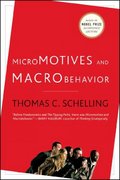Question
Economists who studied the Great Depression over the last ten years have determined that several programs initiated by President Franklin D. Roosevelt under the New
Economists who studied the Great Depression over the last ten years have determined that several programs initiated by President Franklin D. Roosevelt under the New Deal probably slowed down rather than helped the recovery.
One of these programs was the Blue Eagle, operating under the National Recovery Administration (NRA). The NRA was founded under the National Industrial Recovery Act (NIRA), a law passed in June, 1933, in the midst of the Great Depression.
The job of the Blue Eagle program was to regulate industry for "fair wages" and "fair prices" that would supposedly stimulate economic recovery. In July 1933, this program began to force major US companies like Coca-Cola to drastically raise hourly wages by more than 20% to above-equilibrium levels for millions of workers, and charge "fair prices" for their products.Smaller companies could not compete under this program.Afterwards, the Dow Industrial Average fell 17.1%, the third greatest crash in modern stock market history.
The idea at the time was to increase buying power for workers and thereby expand the economy. Supposedly, in this crude Keynesian view, workers with higher wages would buy more goods & services, which would have a large multiplier effect.Except it didn't work.Also, the NRA promoted a massive wave of union-organizing punctuated by employer and union violence and general strikes, raising labor costs for companies even more.
Problem
- Explain how the short-run and long-run equilibrium levels of output and the price level were affected by the Blue Eagle program, using AS-AD analysis.
- Illustrate how this works by drawing a diagram of LRAS (long-run aggregate supply), SRAS (short-run aggregate supply) and AD (aggregate demand) on a piece of paper, using "point A," "point B," etc., like the graphs in the text book. Show the impact of passage of the legislation behind the Blue Eagle program on the price level and GDP.
In order to understand this scenario, it probably would be helpful for students to read the section of the next chapter, Chapter 27(14), on the impact of the Dodd-Frank Act, which is entitled, "Using AS-AD to Analyze the Great Recession."Then, think about what Chapter 26(13) says about "inefficient institutions."Note also that Chapter 26(13) and Chapter 27(14) should be read together in preparation for the HW Quizzes.
Send a picture or scanned image through Canvas of your drawn graph.
You can click on the picture icon ("embed image") in the content-box of your reply to upload your photo or scanned document into your message. Or you can send it as an attachment with your post in Canvas. [See the two Canvas guides on embedding or attaching files in Canvas as a student, in the Week 3 Module] In accordance with the syllabus, the student is responsible for providing a legible image. Do not send via email.
Pay Attention to Your Graph
Graphs that are hastily drawn or have legibility problems (lightness), scribbles, cross-outs, write-overs, after-thoughts, sloppiness, etc. will not be given full credit.Send only one graph; if you send two, the second will be ignored. Students are allowed one submission only. Narrative must be typed.Please submit only one (1) graph.
Step by Step Solution
There are 3 Steps involved in it
Step: 1

Get Instant Access to Expert-Tailored Solutions
See step-by-step solutions with expert insights and AI powered tools for academic success
Step: 2

Step: 3

Ace Your Homework with AI
Get the answers you need in no time with our AI-driven, step-by-step assistance
Get Started


